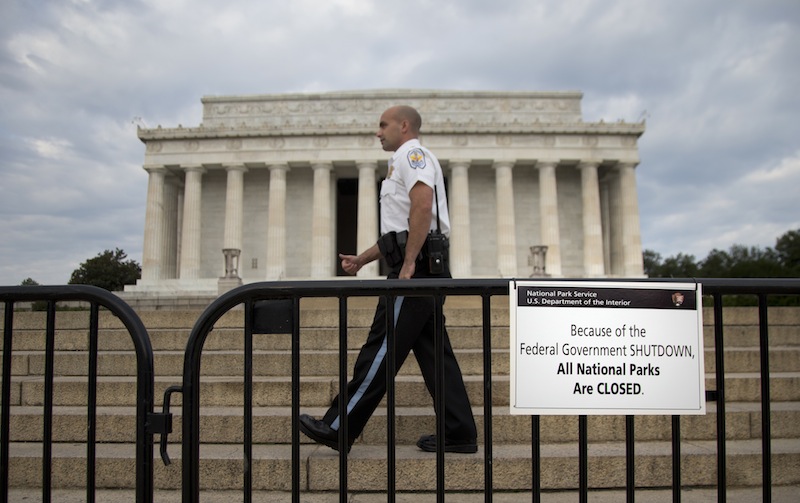NEW YORK (AP) — The federal government shutdown damaged the reputations of Washington politicians but proved good business for the cable television news networks — and taught some reporters new benefits of virtually instant communications.
CNN, Fox News Channel and MSNBC saw their viewership increase during the 16-day partial shutdown, peaking at more than five million Wednesday evening when Congress passed a compromise bill to put the government back online.
“It was a drama,” said CNN congressional correspondent Dana Bash, who logged many hours of airtime along with Kelly O’Donnell of NBC News and Mike Emanuel of Fox. “Whenever there’s a drama, people are interested.”
MSNBC, which has struggled in this post-election year, saw its average prime-time viewership jump 35 percent to 978,000 this month through Wednesday, compared to the first nine months of the year, the Nielsen company said. Fox, which chose not to make any of its reporters available for this story, was up 9 percent to 2.22 million in the same period (although the network also benefited from a prime-time schedule change this month). CNN improved by 11 percent to 721,000.
The news networks brought their traditional hallmarks of crisis coverage to the political machinations, including “countdown clocks” that marked each second closer to a debt limit deadline. The story meant brutal hours: O’Donnell, who filed for MSNBC, CNBC and NBC News, was at work past 3 a.m. Eastern the first night of the shutdown, then back at 6 a.m. for “Morning Joe.”
There were many strong points to the coverage, particularly when reporters didn’t fall back on cliches like declaring winners and losers for an event that did few people proud, said Jane Hall, a journalism professor at American University.
“It certainly gave voice to the American people disgusted over this and there were a number of good stories about the impact of the shutdown on government workers,” Hall said.
Social media was a big help, O’Donnell said. She would hear from people outside the Capitol cocoon through Twitter and email, with many raising questions she used in her reporting. She was asked how the shutdown would affect Social Security or back pay for government workers. NBC used a “dearcongress” hashtag on Twitter to encourage questions.
Sometimes the concerns were very specific, like when shrimp fishermen asked about access to launches on federal land, which she took to an individual congressman in the affected area.
“That was a real-time experience of the shutdown that did not compare to anything in a crisis that we had covered before,” O’Donnell said.
In the past, Bash said she’d often need to plead with producers for time off the air to report. In this case, it wasn’t really necessary: Her sources would text, tweet or email information while she was on the air. When President Barack Obama spoke to the nation on Thursday, Bash had instant reaction from several Republicans minutes after he left the podium.
When Republicans and Democrats weren’t talking to each other, Bash found that they would talk through her.
“I’ll report something or I’ll tweet something and I’ll get a call from a source pushing back or trying to shape it — not because it’s a message to the world, but because it’s a message to the other side,” she said.
Bash would set up live shots in the hallway between Speaker John Boehner’s office and the floor of the House of Representatives, a passageway teeming with sources.
Even though TV reporters love few things more than airtime, by the end even that was wearing off.
“There’s always a rush in covering a big story,” Bash said. “But at a certain point, you want your government to work a little better, regardless of what you do for a living.”
___
EDITOR’S NOTE — David Bauder can be reached at dbauder@ap.org or on Twitter@dbauder. His work can be found at http://bigstory.ap.org/content/david-bauder.
Copyright 2013 The Associated Press. All rights reserved. This material may not be published, broadcast, rewritten or redistributed.






